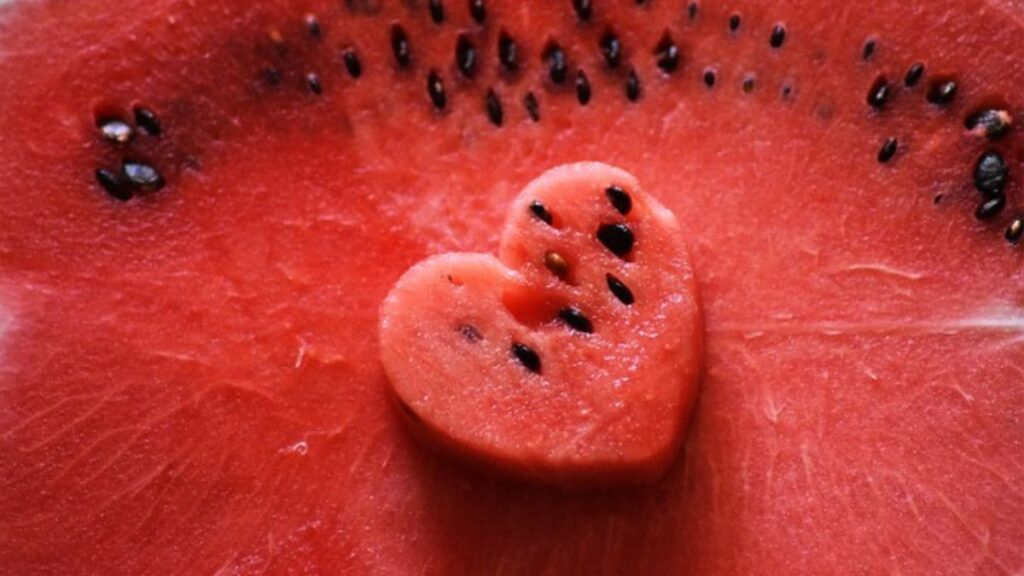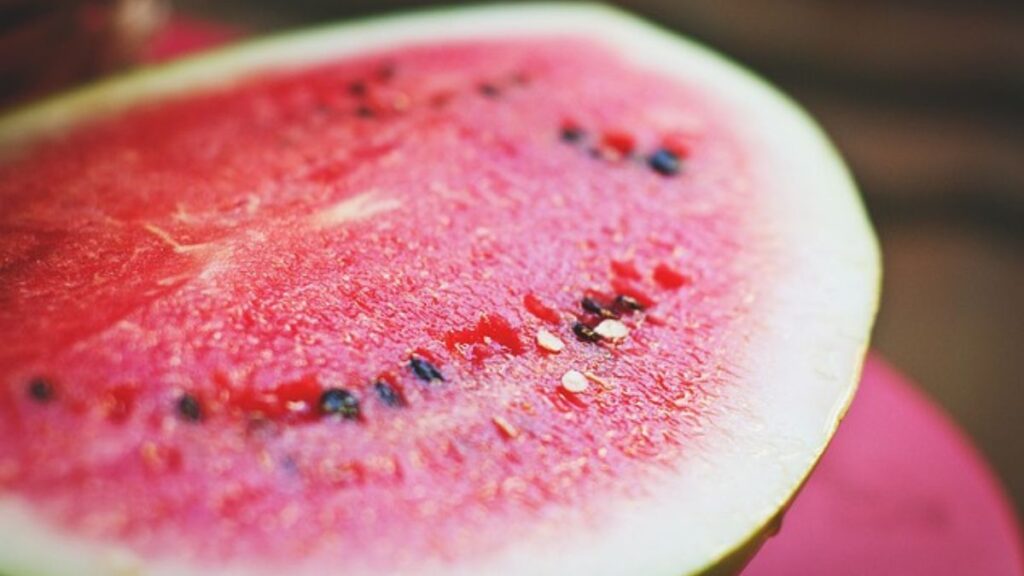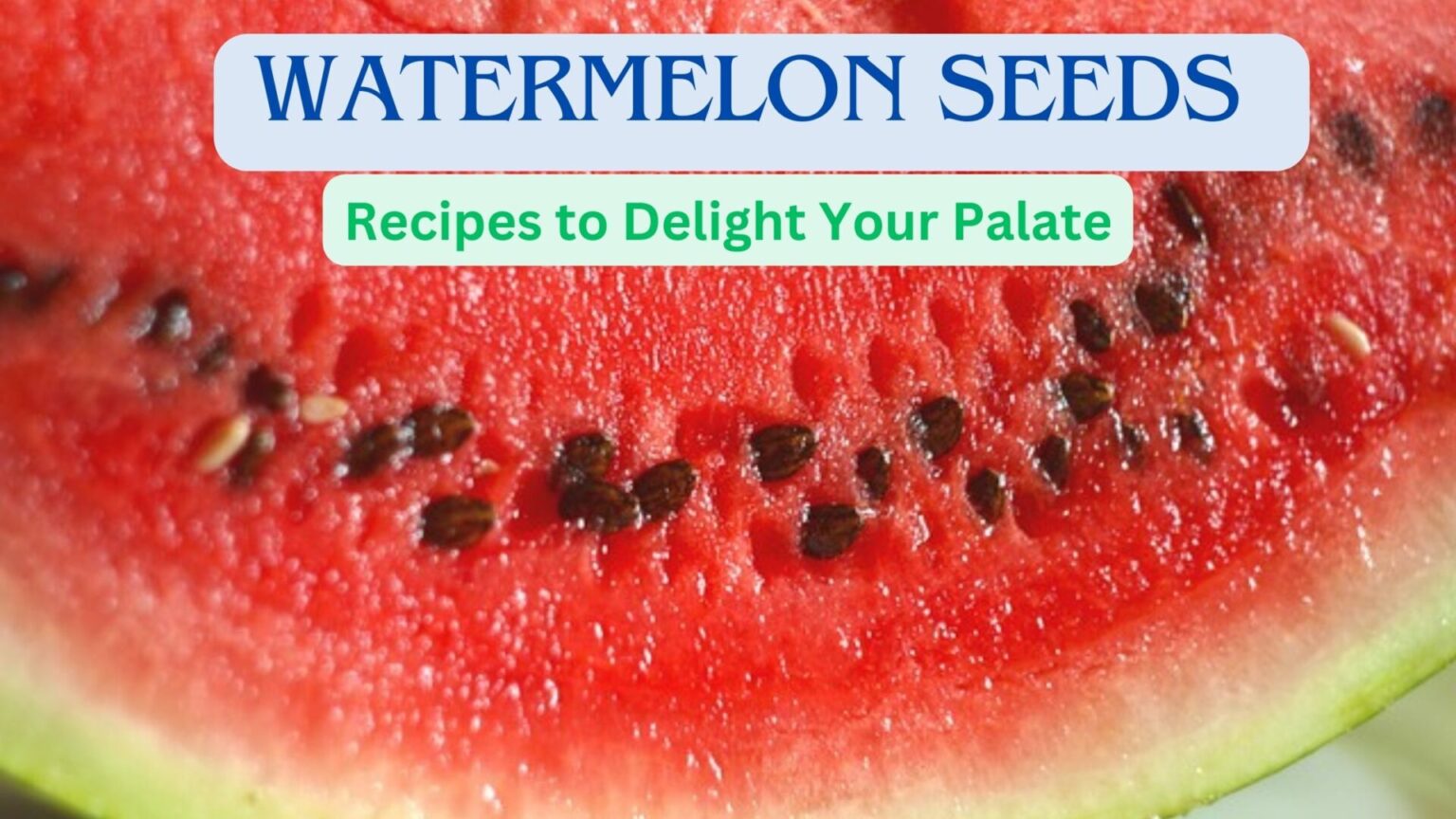Introduction: –
Unlock Culinary Creativity: Innovative Watermelon Seeds Recipes to Delight Your Palate

Are you ready to embark on a flavorful journey that goes beyond the ordinary? Say goodbye to mundane meals and dive into the world of culinary creativity with watermelon seeds! Often overlooked, these tiny powerhouses of nutrition can elevate your dishes to new heights, adding a delightful crunch and a burst of flavor. From savory to sweet, there are countless creative ways to incorporate watermelon seeds into your recipes. Let’s explore some delicious ideas together!
Roasted Watermelon Seeds:
Start with the basics by roasting watermelon seeds to perfection. Simply rinse and dry the seeds, toss them with your favorite seasonings, and roast them in the oven until crispy. These crunchy delights can be enjoyed on their own as a satisfying snack or used to add texture to salads, soups, and more.
- Seed Butter Sensation: Move over, peanut butter! Watermelon seed butter is here to steal the spotlight. Blend roasted watermelon seeds into a smooth paste, adding a touch of sweetness with honey or maple syrup if desired. Spread this creamy goodness on toast, fruit slices, or incorporate it into your favorite recipes for a nutritious twist.
- Granola with a Twist: Upgrade your breakfast game by incorporating roasted watermelon seeds into homemade granola. Mix them with oats, nuts, dried fruit, and a drizzle of honey or maple syrup, then bake until golden brown. This crunchy granola is perfect for topping yogurt, pairing with milk, or enjoying on its own as a wholesome snack.
- Crunchy Coated Creations: Give your savory dishes a makeover with watermelon seed-crusted chicken or fish. Crush roasted watermelon seeds and use them as a flavorful coating for your protein of choice. Whether baked or fried, these crispy creations are sure to impress your taste buds and elevate your mealtime experience.
- Salads with a Twist: Add a pop of crunch to your salads by sprinkling roasted watermelon seeds on top. They pair beautifully with fresh greens, juicy fruits, creamy cheese, and tangy dressings. Get creative with your salad combinations and let the watermelon seeds take center stage.
- Pesto Perfection: Put a unique spin on traditional pesto by swapping out pine nuts for roasted watermelon seeds. Blend them with fresh basil, garlic, Parmesan cheese, olive oil, and a squeeze of lemon juice for a flavorful sauce that’s perfect for pasta, sandwiches, or dipping veggies.
- Trail Mix Magic: Whip up a batch of homemade trail mix featuring roasted watermelon seeds, nuts, dried fruit, and dark chocolate chips. This nutritious and portable snack is ideal for fueling your adventures or satisfying your midday cravings.
“How are chefs incorporating watermelon seeds into gourmet dishes?”
Chefs are getting quite creative with watermelon seeds! They’re using them in various ways to add texture, flavor, and visual appeal to gourmet dishes. Here are a few examples:

- Toasted Seeds: Toasted watermelon seeds can be sprinkled over salads, soups, or grilled vegetables to add a crunchy element. They can also be seasoned with spices or herbs for extra flavor.
- Seed Butter: Just like peanut or almond butter, watermelon seed butter can be made by grinding toasted seeds into a smooth paste. It’s a nutritious alternative for spreads on toast or as a dip for fruits and veggies.
- Seed Crusts: Ground watermelon seeds can be used as a coating for proteins like fish or chicken. The seeds add a unique crunch and subtle nutty flavor to the dish.
- Seed Granola: Mixed with oats, nuts, and dried fruits, toasted watermelon seeds make a delicious and nutritious addition to homemade granola. Serve it with yogurt or milk for a wholesome breakfast or snack.
- Seed Sprinkles: Finely ground watermelon seeds can be used as a topping for desserts like ice cream, yogurt parfaits, or fruit salads, adding a pop of color and texture.
- Seed Pesto: Watermelon seed pesto can be made by blending toasted seeds with basil, garlic, olive oil, and Parmesan cheese. It’s a tasty alternative to traditional pesto and can be used as a sauce for pasta or as a spread on sandwiches.
These are just a few examples, but the possibilities are endless when it comes to incorporating watermelon seeds into gourmet dishes!
“Are there any surprising health benefits to eating watermelon seeds?”
Indeed, watermelon seeds offer several surprising health benefits:

- Rich in Nutrients: Watermelon seeds are packed with nutrients like protein, healthy fats, vitamins (including B vitamins like niacin and folate), and minerals (such as magnesium, zinc, and iron).
- High in Protein: Watermelon seeds are a good source of plant-based protein, making them a suitable option for vegetarians and vegans looking to increase their protein intake.
- Heart Health: The presence of magnesium in watermelon seeds may help regulate blood pressure and support heart health. Additionally, the healthy fats found in these seeds can contribute to improved cholesterol levels.
- Digestive Health: Watermelon seeds contain both soluble and insoluble fiber, which can aid in digestion, prevent constipation, and promote a healthy gut microbiome.
- Antioxidant Properties: Watermelon seeds contain antioxidants like vitamin E, which help protect cells from damage caused by free radicals and may reduce the risk of chronic diseases.
- Boosts Immunity: The combination of vitamins, minerals, and antioxidants in watermelon seeds can support a healthy immune system, helping the body defend against infections and illnesses.
- Energy Production: The B vitamins found in watermelon seeds play a crucial role in energy metabolism, helping convert food into energy for the body to use.
- Bone Health: The minerals present in watermelon seeds, such as magnesium, phosphorus, and zinc, are essential for maintaining strong and healthy bones.
- Skin and Hair Health: The vitamin E content in watermelon seeds contributes to healthy skin and hair by protecting against oxidative damage and promoting cell regeneration.
- Weight Management: Due to their high protein and fiber content, watermelon seeds can help promote satiety and reduce overall calorie intake, potentially aiding in weight management efforts.
These benefits highlight the nutritional value of watermelon seeds and make them a worthy addition to a balanced diet.
Conclusion:-
With these innovative recipes, you’ll never look at watermelon seeds the same way again. Embrace your inner chef, experiment with flavors, and let your taste buds be your guide on this delicious culinary journey!
Frequently Asked Questions (FAQs)
Q: Are watermelon seeds safe to eat? A: Yes, watermelon seeds are safe to eat and are actually quite nutritious. They are rich in protein, healthy fats, vitamins, and minerals.
Q: Do watermelon seeds have any health benefits? A: Absolutely! Watermelon seeds are packed with nutrients like magnesium, iron, zinc, and B vitamins, which can support overall health and well-being. They may also aid digestion and promote heart health.
Q: Can I eat watermelon seeds raw? A: While you can eat watermelon seeds raw, they are often more palatable when roasted. Roasting enhances their flavor and crunchiness, making them a delicious addition to various dishes.
Q: How should I store watermelon seeds? A: Store roasted watermelon seeds in an airtight container at room temperature for up to a few weeks. For longer storage, you can keep them in the refrigerator or freezer.
Q: Are there any allergy concerns related to watermelon seeds? A: Watermelon seeds are not commonly allergenic, but individuals with seed or nut allergies should exercise caution and consult with a healthcare professional before consuming them.
References:
- Thakur, G., Mitra, A., Pal, K., and Rousseau, D. (2015). Utilization of Watermelon Seed Protein in Food Applications and its Health Benefits. Science and Technology of Fruit Wine Production, 45-53. doi:10.1016/B978-0-12-800850-8.00005-0
- Anwar, F., Bhanger, M. I., and Kazi, T. G. (2003). Changes in Composition and Antioxidant and Antimicrobial Activities of Oil from the Seeds of Sesame (Sesamum indicum L.) Cultivars Grown in Pakistan. Journal of Agricultural and Food Chemistry, 51(22), 6662–6669. doi:10.1021/jf0346202
- Chitra, U., and Singh, U. (1991). Studies on Phytic Acid, Polyphenols, and Alkaloids in the Seeds of Watermelon. Journal of Agricultural and Food Chemistry, 39(1), 11–13. doi:10.1021/jf00001a003
- Fernandes, A. C., and Nishida, W. (2002). Comparative Study on the Inhibition of Lipid Peroxidation by Flavonoids. Journal of Natural Products, 65(11), 1610–1614. doi:10.1021/np0202579






